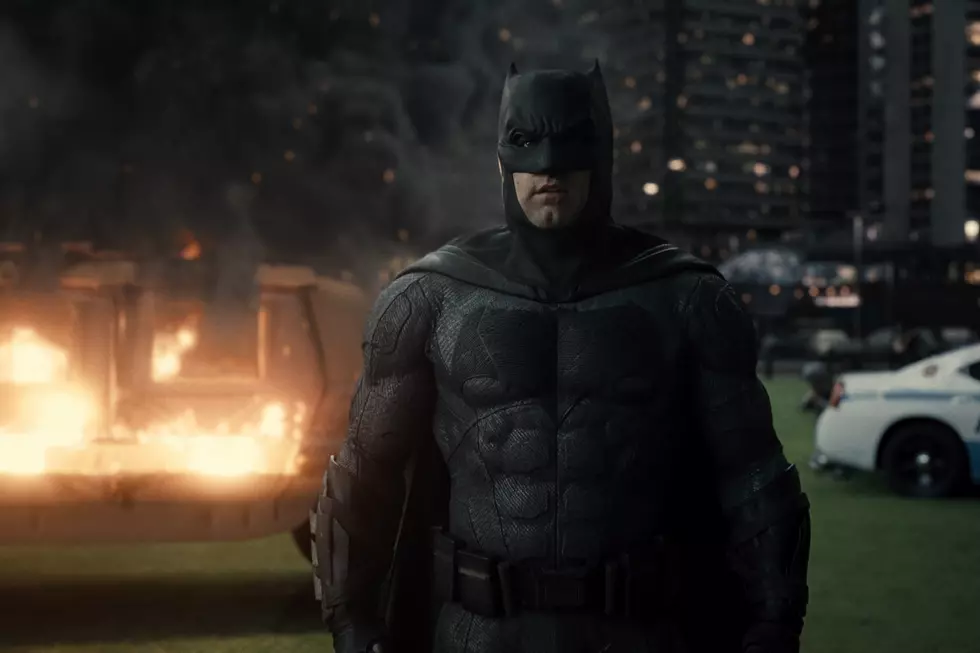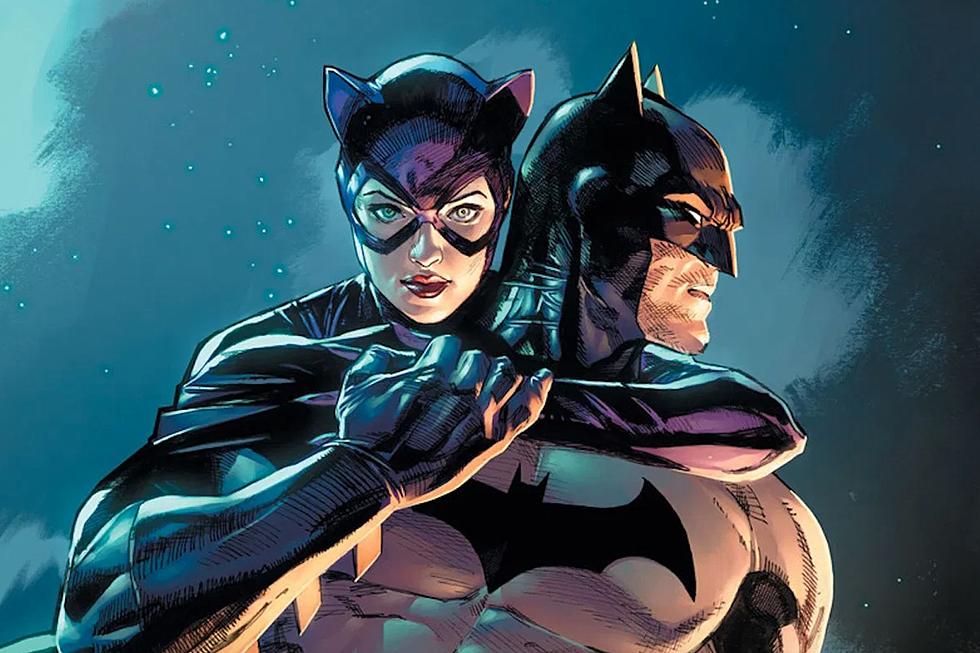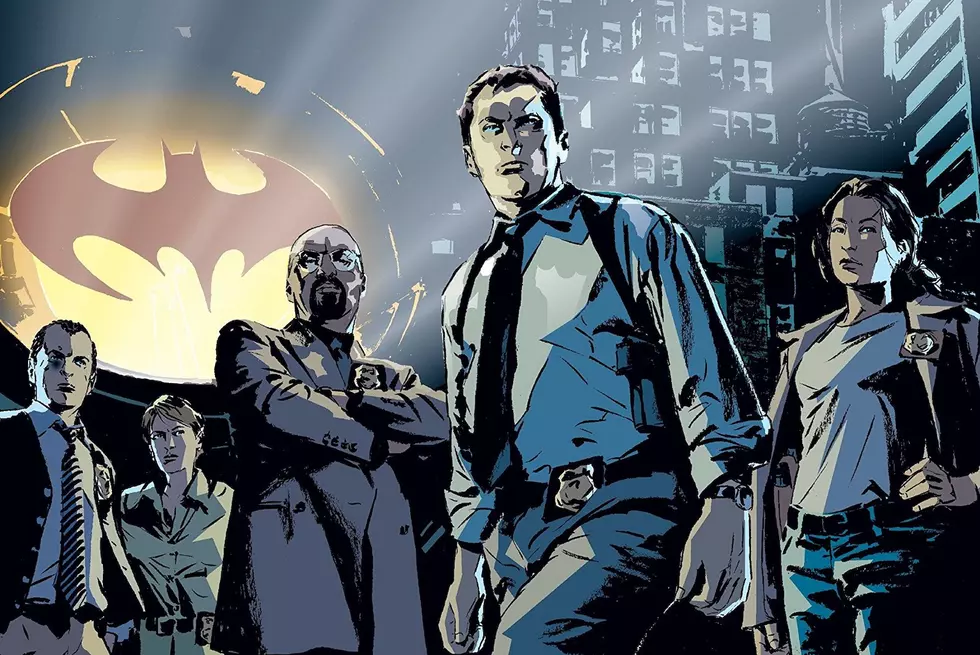
Why Are Christopher Nolan Fans So Intense?
The last time Christopher Nolan released a movie, film critics got death threats. That was back in 2012, when Nolan released ‘The Dark Knight Rises,’ and the first writers who dared to stray from the positive consensus about the film received waves of overwhelming backlash. After Marshall Fine published his pan, his site and his page on Rotten Tomatoes were both bombarded with angry comments politely requesting he “die in a fire” and hoping someone would beat him into a coma with a “thick rubber hose.” Not just any hose; a thick one. Getting beaten into unconsciousness with a normal-sized hose wasn’t adequate punishment for the unpardonable sin of not liking ‘The Dark Knight Rises.’
The response to Nolan’s new movie ‘Interstellar’ hasn’t been quite that severe (because it’s hard to out-severe fantasies of bludgeoning someone with a hose), but it bears a similar strain of white-hot anger. When The Village Voice’s Stephanie Zacharek called the film “numbingly sexless” and claimed Nolan “lacks the human touch,” readers accused her of being “too old and too stupid to understand criticism.” ScreenCrush contributor Britt Hayes wrote an essay about ‘Interstellar’’s “aggressively masculine perspective” and received a particularly disgusting response on Facebook filled with misogynistic language and threats. His argument, in a nutshell: “‘Interstellar’ doesn’t have an aggressively masculine perspective; I have an aggressively masculine perspective!”
Not every hardcore Nolan fan’s reaction to negative (or even mixed) reviews is that severe. But even the more thoughtful responses share a similar intensity. Earlier this week I joined The /Filmcast to help review ‘Interstellar’; all four critics on the show were mildly-to-mostly positive on the film, and everyone said it was an experience worth having on the big screen. Reading many of the listener comments about our discussion, though, you would think all four of us not only panned it, but accused Christopher Nolan of immoral activities involving a farm animal.
To be fair, we did receive a few encouraging responses (and a couple very thoughtful ones sent privately over email). But many hardcore Nolan fans ignored all of our positive comments and focused entirely on the negatives ones, which they then proceeded to systematically dismantle. It’s not that Nolan leaves out some seemingly important scenes between characters; it’s that those scenes were actually unnecessary (and we should simply assume what happened, even if we never saw it). It’s not that the end of ‘Interstellar’ betrayed its emotional core with a pat conclusion; it’s that we, as viewers, were not properly equipped to interpret Nolan’s meaning. One listener went so far as to claim that host David Chen was incapable of properly appreciating the film because he didn’t have children. So don’t even waste your time, viewers with fertility problems! This movie’s going to go right over your heads.
Aggressive or not, the underlying subtext of all these reactions is the same: Christopher Nolan is totally infallible. If there’s a potential mistake or flaw, it’s always the viewer’s fault, never the film’s (or, Nolan forbid, the director’s). No matter the situation, no matter the context, Nolan is right and those who disagree with him are wrong. It’s a level of auteurist devotion so extreme it would make Andrew Sarris uncomfortable.
It’s extreme, and extremely unusual. There’s no modern director who earns this kind of loyalty, at least not at this scale. The term “cult film” or “cult director” typically applies to artists on the margins; they might inspire intense dedication, but only from a faithful few. Nolan’s fanbase is cultish and enormous. Marvel movies have their share of compulsive fans, and I’ve witnessed some ugly examples of online aggression aimed at people who disliked ‘The Avengers,’ but nothing quite this excessive. ‘Star Wars’ nerds might be the most fanatical of all, but they tend to lob more criticism at their beloved franchise than anybody else (you didn’t see a lot of death threats aimed at the critics who hated ‘Attack of the Clones’). Steven Spielberg, Martin Scorsese, and Quentin Tarantino all have their legions of supporters, but few-to-none with the same level of feverish fervor.
So the question then becomes why; why are Christopher Nolan’s fans so intense? It’s a subject I’ve been wrestling with for the last several days. In private, I’ve posed that question to several colleagues. To a man (and woman), they each gave the same response: “Batman.” Nolan made Batman (and, particularly, ‘The Dark Knight’) and endeared himself forever to overzealous fans of the Caped Crusader. Now and forever, he’s their guy.
That could certainly be part of it, but I’m not sure that’s the whole story. After all, Tim Burton made at least one Batman movie that was almost as beloved in its time as Nolan’s is today, and he certainly didn’t get a lifetime pass from moviegoers. (I would be pretty surprised to see someone menace a critic who doesn’t like Burton’s upcoming ‘Big Eyes’ with a thick rubber hose.) Joel Schumacher doesn’t have to live his life looking over his shoulder just because he made ‘Batman & Robin’ and temporarily turned the title characters into laughingstocks. Batman fans might be ardent, but they’re not quite so singular.
Perhaps the situation has less to do with the fact that Nolan made a great Batman movie than the kind of Batman movie he made—and the kinds of movies he’s made throughout his entire career. Looking over Nolan’s filmography you see the same archetypal protagonist reappear again and again: the moody loner who is laser-focused on his mission. That’s Leonard from ‘Memento,’ hell-bent on finding the man who killed his wife, even though he can’t remember who did it (or anything else). That’s Robert Angier from ‘The Prestige’ who is determined to discover his rival’s secret and become the greatest magician of all time. That’s Dom Cobb from ‘Inception,’ who takes a supposedly impossible job (implanting an idea in someone’s subconscious) in order to reunite with his estranged family. That’s Cooper from ‘Interstellar,’ who journeys to deep space to save the future of the human race, but never abandons his promise to return to his young daughter. And that’s definitely Bruce Wayne of the Batman franchise, on a one-man war to rid Gotham City of crime. Nolan’s movies include other ideas and themes, but his most common focus, and the most strongest emotion in his work, is all-consuming obsession.
That certainly doesn’t mean you have to be an all-consuming obsessive to enjoy or admire Christopher Nolan’s work (just as I don’t think you have to be a father—or a mother—to appreciation ‘Interstellar’). But perhaps Nolan’s subject matter and his preferred sort of hero resonates particularly strongly with the kind of person who might, oh I dunno, feel so passionately about a movie that they would threaten to strangle someone over it. Some of Nolan’s defenders have their heart in the right place—they love something and want to communicate that—but they simply refuse to accept other potential viewpoints. Their personal blinders prevent them from entertaining other ideas. It’s their way or the highway. That sounds familiar from Nolan’s movies and heroes too.
I could be totally off about all of this. It’s very possible there’s another reason I haven’t thought of yet, one hidden within layers of my subconscious that can only be infiltrated by a single, dedicated man who will stop at nothing to succeed. I’d honestly love to hear other theories (provided they don’t involve beating me to death with gardening implements) in the comments below.
More From ComicsAlliance










